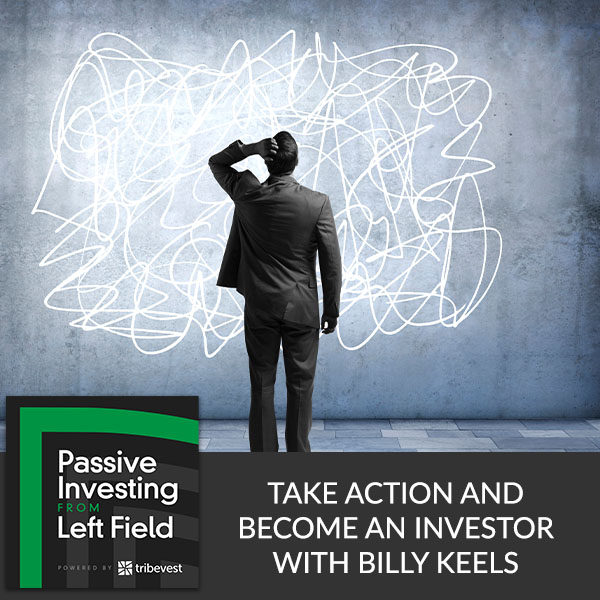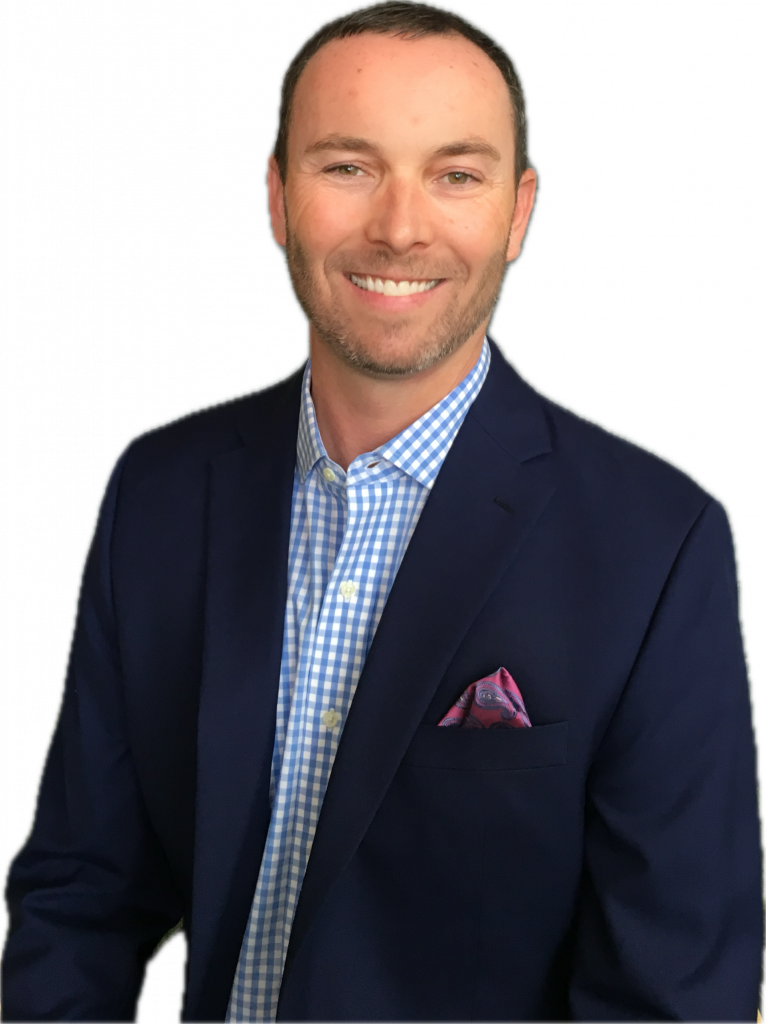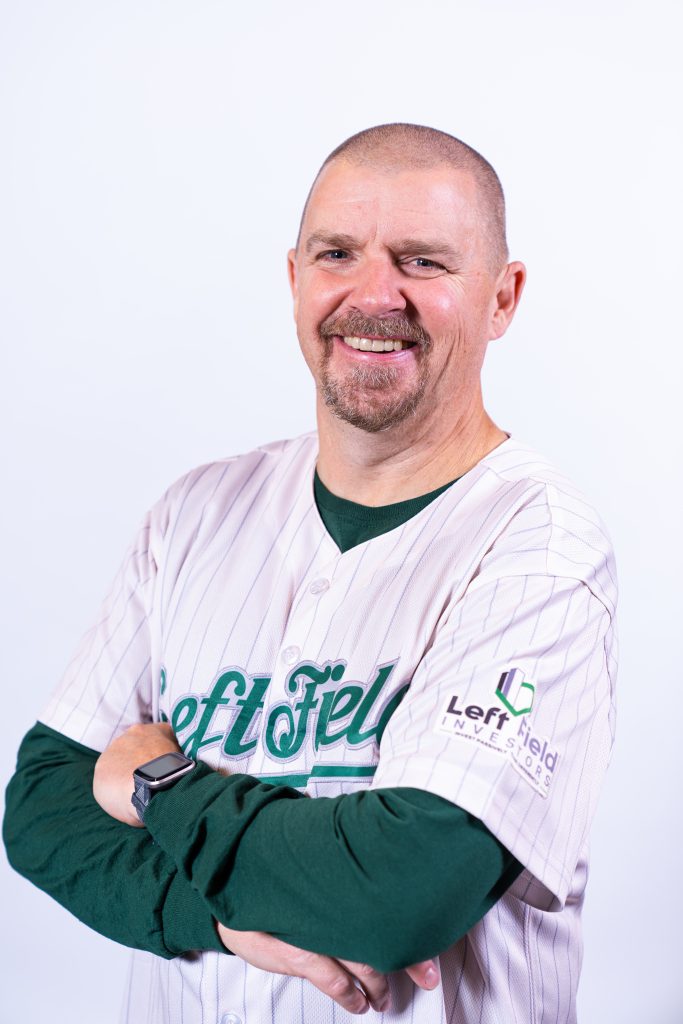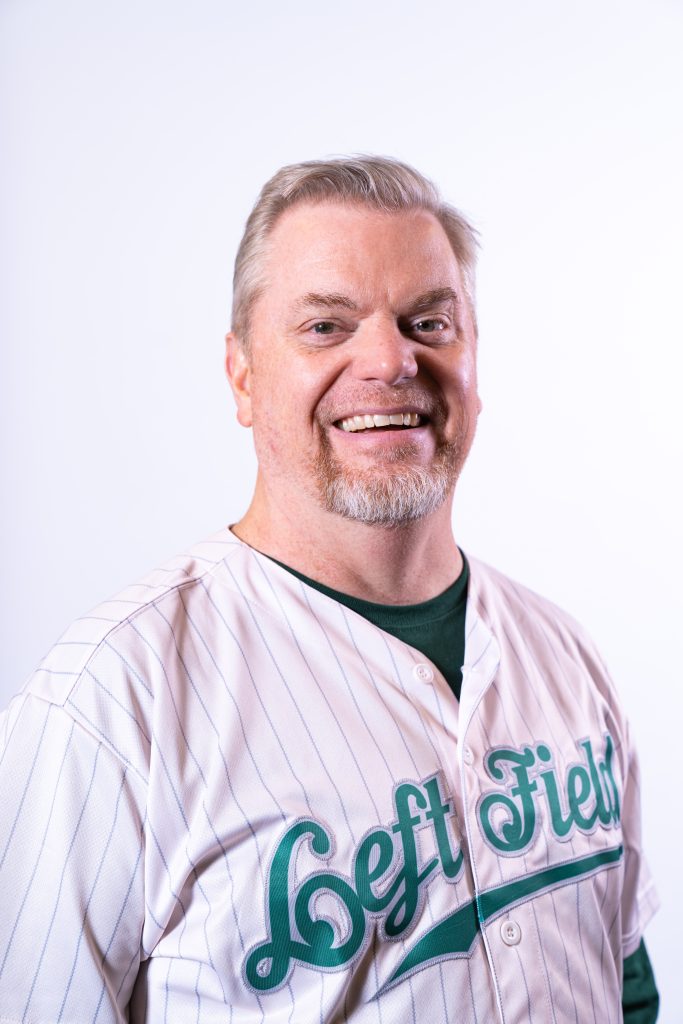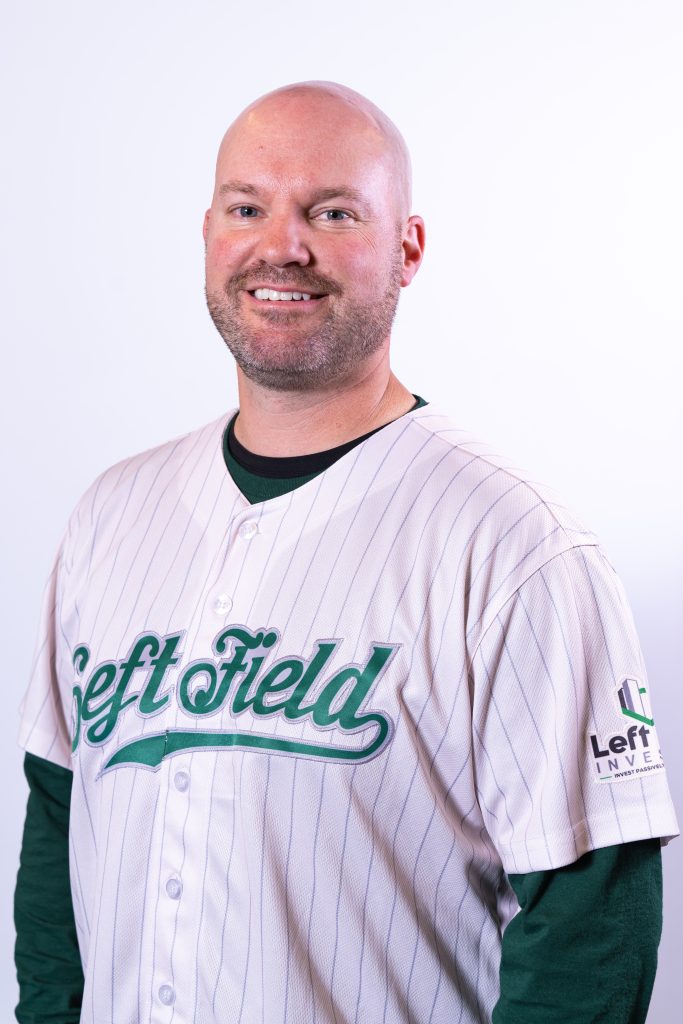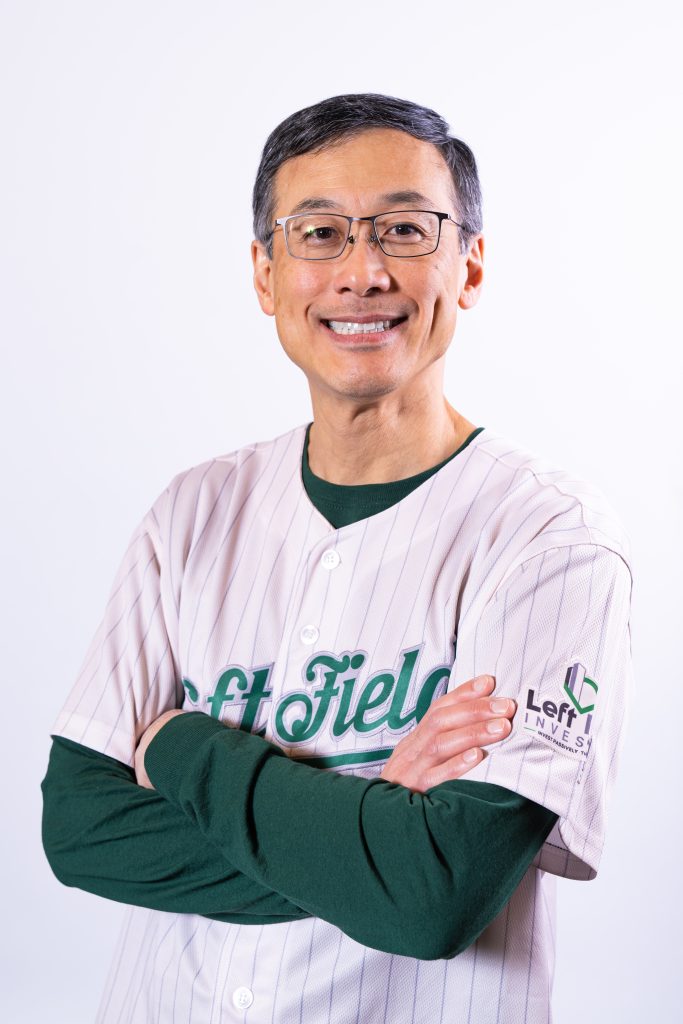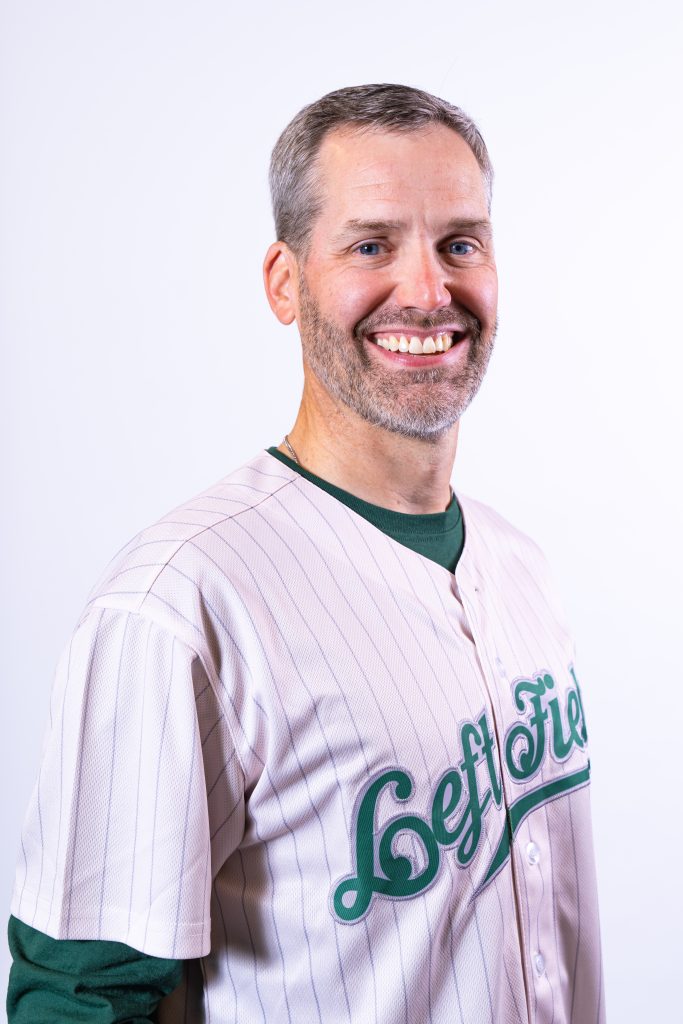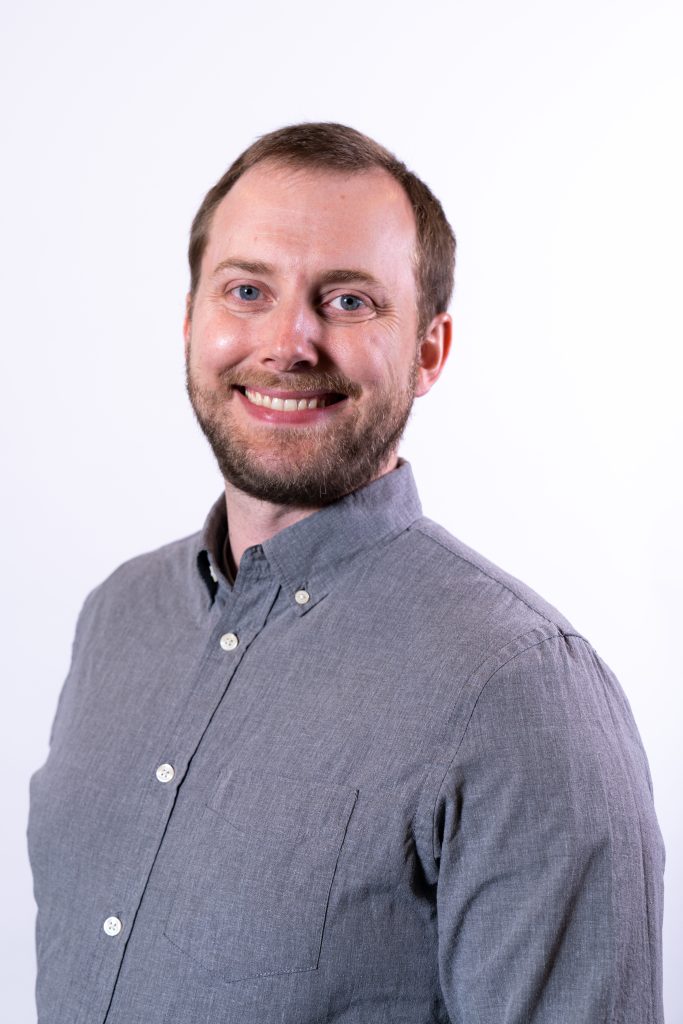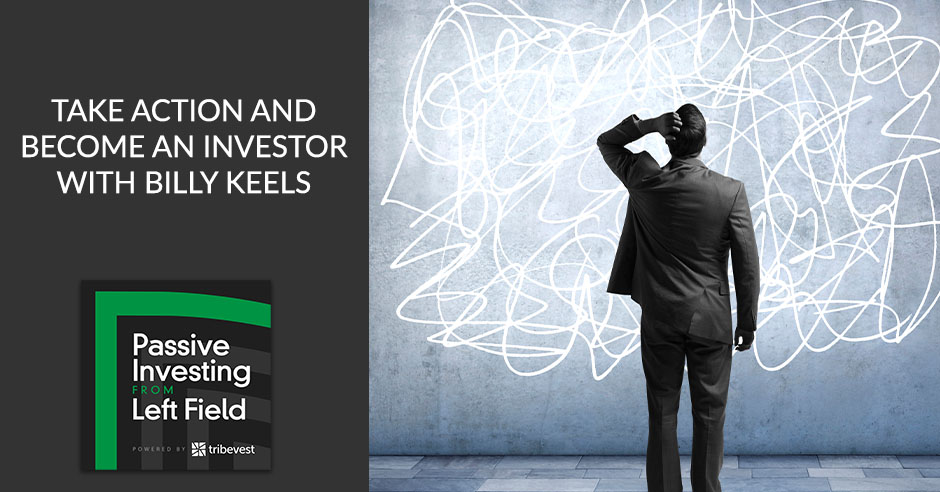
There is a difference between investing and saving. To attain financial freedom you need to take action and invest. In this episode, Billy Keels, Founder of First Generation Capital Partners, shares his experience and the different trials he faced along his journey. He talks about how Rich Dad Poor Dad by Robert Kiyosaki changed his mindset and helped him liberate himself from his W2. Tune in to this inspiring episode to gain insights on how Billy found investing success and achieve financial freedom.
—
Listen to the podcast here
Take Action and Become an Investor with Billy Keels
I’m excited to have Billy Keels with me. He is the Founder of KeePon Cashflow, a company with a mission to educate high-paid corporate employees on how to have more control over their financial lives through investing in real assets. He’s also the host of the Going Long Podcast and he liberated himself from a W-2 obligation. He’s from Columbus, Ohio, but he is living far away, but I’ll let him tell you about that. Welcome to the show.
Jim, this is like a long time coming. I’m super excited about this and thank you very much for the warm welcome. I’m excited about the conversation.
We’ve had a lot of good conversations since we met and I’m looking forward to this one. The way I like to start is your financial journey. I know you live overseas. Tell us about that, especially from where you live, what you’re doing, how did you get into real estate and how did this all happen?
Two things, if you don’t mind. I’ll show you about the journey, but part of it is you mentioned one thing and we’ve continued to evolve. KeePon Cashflow is where we started. We’re first-generation capital partners. There’s a real story behind that. I’m sure that we’ll get into that, number one. Number two, I want to recognize you for being guest number 150 on the Going Long Podcast with Billy Keels, where you crushed it. Everybody should check out Jim when he was on the podcast. He was awesome.
Lastly, I’ll answer your question. I know that you rock with this show. You put so much time, effort, and dedication into it. Readers, make sure that you take a couple of seconds to leave an honest written review and a rating because that helps Jim attract more of the right guests. You can get exactly what it is that you need, what you want that’s going to help you move further much faster. I hope you’re okay with me asking for that, Jim. I know I’m a guest, but as a fellow podcaster, it’s one of those things that, as a reader, it’s something that helps. Make sure you leave that honest written review as well as a rating.
I’m from Columbus, Ohio. This is a special conversation for me. The money journey started out in not such a nice place because both of my parents, I guess everything starts with your parents, and whether it’s right or wrong, it is what it is. I watched both of my parents struggle with money. It wasn’t their fault. They weren’t taught about money. What they were taught is that they go out and work harder.
Neither one of them finished college. My dad never went to college. I watched them both work two jobs. I watched them struggle. At the end of the month, they are trying to figure out which bills they needed to pay. That started the relationship with money in a tense one because when you don’t have it, it’s never a good thing to talk about. If you don’t talk about it, you can’t learn about it. If you don’t learn about it, you stay in this cycle that is never a good thing.
Although I watched them do that, they put such a premium on education. My parents separated. We moved to different states. By the time I was twelve, we had lived in Colorado, Texas. My parents separated and eventually divorced, but we came back. One of the things that happened when we came back to Columbus was my parents wanted us to always be in good school districts.
We probably couldn’t afford to live the lifestyle of most of my friends and I was there. It exacerbated and it made the problem even worse because we were in a place where I was seeing all these friends that had these nice things. I thought that that was the important stuff. I’ve since realized that that’s not the important stuff. When you’re young, you’re impressionable. I watched my parents struggle. That made it even much more difficult at that point in time.
The positive thing that came from that is I watched my parents work hard. Working harder was something that has been instilled in me at birth. I went to college at Miami in Ohio in the Southwest of Ohio. When I was in college, I took out a debt because I needed debt. I got some scholarships and washed wrestling mats during college to help pay for college. I learned how to work hard. I got good grades. I was an A student. I’m a recovering perfectionist now because I always try to do things right.
[bctt tweet=”If something happens once, shame on the person who pulled the wool over your highs. But if the same thing happens twice, then shame on you.” via=”no”]
Along the way, I learned how to work hard and save. Once I started making money, I realized the difference between saving and investing because where I come from, when you had money at the end of the month, that was considered investing. I learned later on in life that’s not investing. Investing is something completely different.
I did what everybody else was doing. I got the same results as everybody else as it relates to money. I got a good job. I was out there. I was working hard. I was getting promotions. I was achieving a top sales executive, rookie of the year, all this stuff. My relationship with money started to improve because I finally had it. I did what everybody else did. I put my money in the stock market. The 2000 bubble happened, and I lost money. They told me, “Don’t worry, do some DCA, Dollar-Cost Averaging.” Eventually, it came back.
In 2008, the exact same thing happened again. When that happened, Jim, it made me reflect on what my parents always told me, which was, “Billy, if something happens once, shame on the person that pulled the wool over your highs, but if the same thing happens twice, shame on you.” This was the second time that I had invested in the stock market. I trusted the stock market and it didn’t work for me.
I had to look for something else. I started reading a lot of books because I wanted financial control. I wanted more control over the outcomes of my life. I’m sure we can talk about it a little bit more. That is when I started to find out more about how I needed to couple other streams of income with the thing that I knew how to do, which was work hard to be in the corporate role and move up the corporate ladder. That’s a little bit about the relationship with money and where we got started. Eventually, I’m sure we’ll get into how I started investing in real assets.
I want to touch on you. You said there’s a difference between saving and investing. That was important once you figured that out. Talk about that. What is the difference?
Keep in mind the context. Where I came from, if you had money at the end of the month, because nobody talked about investing, that was a foreign concept. Growing up, I thought that saving, meaning having money in your account at the end of the month, that was investing. What I didn’t realize was that was the environment that I was in.
Investing was something else, meaning that you already had your basic necessities taken care of, paid your bills, paid school, paid your gas, and had the groceries. You also had reserves. If something were to go wrong, you could tap into that money. Once you have those reserves and you have your basics covered, the additional capital can be used or the additional money could be used to be invested, placed in vehicles that would generate more of the money. Make your money multiply at the end of the day.
I used to think that the only way to do that was investing in the stock market because that’s what everybody else was doing. That’s what I saw. That’s when I started realizing that there were also other things I needed to start doing because in the one place I was “Investing,” I had no control over the outcomes. That was frustrating for someone who is a recovering perfectionist and an A student. Not being able to have control did not work well for me.
How did you find real estate or these alternative investments? You were a stock market guy. 2000 happened and 2008 happened. You’re like, “Shame on me now.” Your whole perspective is that you have money. You’re making money. How did you figure it out, “I need more income streams, tax breaks, everything that comes with real estate and what you do now?” How did you find that? How did you make that leap?
In 2008, I knew that I needed to take action. I came across this little purple book, Rich Dad Poor Dad, which I know everybody has heard or read fifteen times. The thing is, I picked it up, Jim, but I didn’t finish it. I picked it up and I was like, “This is pretty cool.” I put it down because I was back in the States. It was at my dad and stepmom’s house. I thought it was cool but didn’t finish it. A couple of years later, I went back stateside. I picked up the book, read it, and brought it back to Spain with me. I was like, “This is unbelievable. This is the most important thing.”

What happened from there, Jim, is I took that theoretical knowledge. I started reading the entire Rich Dad series. I found podcasts. I was listening to them. I found videos on YouTube. When you become a theoretical ninja of something, I was the most theoretical ninja ever. I knew everything, revenue minus operating expenses is NOI and NOI, you have your debt service, and everything else you get to keep. I was like, “This is awesome.”
I kept doing that and I knew. The thing that started to get me to take action was one of the most painful things that have ever happened to me in my life. I was ashamed to even tell the story. I’ve realized that telling the story makes me feel better, and also, it happens to a lot of people because when you’re an A student and a person who believes in the corporate role. You climb the ladder, do everything you’re supposed to do, and when you’re making a lot of money, you can get lost.
The night before my son’s third birthday, I was not feeling well. I’m sick to my stomach. The next morning I got up, I had to take a flight to Frankfurt early in the morning. I know you’re familiar with over there in Germany and stuff. When I got ready to take my flight, I woke my wife and my one-year-old up because I wanted to give my three-year-old a hug and kiss because I had to fly to Germany that morning.
When I was in Frankfurt, we were at a meeting all day long. The thing that I wanted to be able to do was at least give my son a hug and a kiss. At 6:00 in the morning, I ran out the door to the airport. That night, while my in-laws, my wife, and my two kids were back in Barcelona, I was at this business meeting. That hurt me bad because they were blowing out the candles together. They were there for the birthday. One of the things that I’d always told myself is I want to be a present father. I wanted it to be there and I wanted to be at the special event. That was completely incongruent.
What that did in that painful emotional situation and that’s something that I can never get back. It took me from being a theoretical ninja to get him to start to take action. I wrote down my five-year goal. In eighteen months, I’d accomplished the five-year goal that I had been pontificating on for the previous several years and not taking action.
That’s the thing that got me into real estate, specifically because I was looking for more control. That was a model that I understood. I realized that I could earn $200 to $300 a month per door if I did that. When that started happening, things worked well. I’ve tried to do that in Barcelona, but I wasn’t penciling out because when you were getting started, you didn’t realize that you need the education and accountability partners. I didn’t have either of those here in Barcelona. When the numbers started penciling out as negative cashflow, I was like, “This doesn’t work.”
At that point, a couple of friends here were like, “Bill, you’re a US citizen. Why don’t you buy back in the US?” I was like, “Are you serious? I live in Barcelona and the properties would be 8,000 kilometers or 8,000 to 9,000 miles away.” I ended up doing that and to date, I spent almost a decade working in a demanding corporate role. At the same time, investing in real estate initially, I understood that model and bought some small multifamily properties. I ended up buying a mobile home park while I was living here. I found out that I was something called an accredited investor.
Jim, I had no idea what that was. I’d never been around that terminology. I had been an accredited investor for a number of years. When I realized that, that gave me access to specific types of investment opportunities. I was like, “I can give somebody else $200,000 to $300,000. They do the work and I get the reward.”
I ended up investing passively in other things like ATM machines. What was happening along the way was I kept hearing that investing in real estate was going to help to drive my taxes down. That’s what I was expecting. I was investing in this real estate and it was awesome because the real estate, the mobile home park, the ATM machines, doing all of that, whether it was active or passive, it was generating tax-efficient money. I was paying almost no tax on it.
The thing that was happening was I kept paying 40% plus in my income tax. I was like, “I thought this was supposed to bring down my taxes.” At the same time, I started recognizing after several years that there was this thing on my tax returns, which was passive losses. It was in the hundreds of thousands of dollars.
[bctt tweet=”With investing, you already have your basic necessities taken care of. You also have reserves. If something were to go wrong, you could tap into that money.” via=”no”]
I was like, “I’m investing in these hard assets. I am making money on them. It’s efficient. I’m still paying 40% plus in income tax because I earned a lot of money.” I know it’s a first-world problem, but that was what was happening. I had the money that was trapped that I couldn’t do anything with. I paid my CPA, we sat down and he explained the difference between active income and passive income, why they didn’t mix, and things like that.
I looked for another solution to that problem, and that’s what led me to invest in the energy sector. I’ve realized that, and I know this is one of the things that you teach as well, is finding the right vehicle for your investment context. You can get to the destination in the most comfortable way possible with the vehicles that you feel the most comfortable with. Hopefully, that gives a broad base and gives you an understanding of how I got started there and how it’s evolved since then.
I lived overseas and I lived in Germany. You live in Spain. When I was in Germany, I wasn’t doing any investment. I was investing in the stock market because that’s what I knew then. That was easy because the internet was starting. It was possible. I can’t imagine living that far away and owning actual assets. Syndications are out of your control, but how did you figure out how to manage your properties from such a long distance? I imagine some of them you might not have visited or even seen.
I did it wrong a lot until I figured out how to do it right properly. One of the things that kept coming back to me, Jim, was I didn’t want to feel like I felt when I missed my son’s third birthday. I didn’t want to depend anymore on my job for a source of income or something that was investing in something that I would have to get several years later in the pension plan or the 401(k) equivalent.
As I started down the path to investing long distance, I realized that my criteria were number one. I wanted to invest in the place when things went wrong. I could at least call a family member that could get there relatively quickly. That’s how I started selecting the right location. It’s not the right way to select a location, everybody. Do not do what I did. I had money in the bank, and I knew I didn’t want to sit there anymore.
Combining the fear-based criteria of saying, “My family members can get there within an hour, plus I have money.” That’s the way that I made the first purchase of my first duplex. From there, I had a positive financial result that inspired me to continue to invest. I bought a quadplex and I bought another one. That’s why I got to my five-year goal in eighteen months.
Along the way, I didn’t make a lot of mistakes. When I think about the first property we purchased, I thought, “I wanted to create cashflow and I wanted to purchase a property.” I didn’t think about building a team because that’s critical, especially when you’re going to be thousands of kilometers away. I didn’t think about the dynamics of the location that I was in investing in because my thought process was as a family member nearby.
I did a lot of things wrong, but I knew I didn’t want to feel the way I felt before. That got me to take action. Along the way, I realized once tenants started calling and didn’t want to call Spain, we had to put a new process in place. We got things like a 24 hours a day, seven days a week answering service that would call the person who was a general contractor/handyman. I realized that was a way to get it solved, but I needed to then go get a proper property management company.
I did it wrong, but I learned a lot in the process and it’s helped to make me a much better investor now because when I hear people talk about the things that they’re doing that I know that they shouldn’t do, I know what the fix is. Unfortunately, I paid full price for those mistakes and can help other people to do the same.
It’s in the exact same way that that’s about managing a specific asset, which is now it’s not my core strength. That’s why I don’t focus there anymore, but I do have the experience. It’s also about helping other people who are like me, high-paid professionals and busy that want to be able to make sure that they’re spending time with their loved ones and doing it in the way that makes the most sense for them when they want it to be able to do it.

I’ve shifted more from understanding a specific asset type to understanding the specific context of a person and figuring it out because I’ve had experience in different types of assets to be able to figure out, “You have this specific issue. Have you thought about investing in this type of solution with this type of team?” It’s been a little bit of the evolution through experience, not doing things properly. Eventually, I got things like paid mentorship and could draw on other people’s experiences. I realized that that was a way to accelerate me, being able to get to the place that I wanted to be for my family and for myself.
That’s great because you either learn from your own experiences, usually in the form of failures or mistakes. You can take the shortcut and learn from someone who’s already done it. It’s probably more effective. You learn a little bit better if you make the mistake on your own, but if you can avoid the mistake altogether, that’s the first choice.
I liked how you said you’re trying to match the person with the situation. I don’t have a W-2. I haven’t in a while. When people talk about some of the tax strategies that the W-2 people, I tune out. I try to tune back in because I know a lot of the people in my community need this knowledge. Talk to us about what were you doing when you had your W-2? What were you doing to mitigate that at a tax that you couldn’t on the passive side?
It is my experience. By no means am I giving anybody any type of tax advice or any of that stuff? I would say that whenever you hear a story, talk about it with your tax team or strategist and see how it could apply to your situation. One of the things that I mentioned before is when I saw these passive losses, I thought that real estate was going to help me to reduce my taxes. I was not someone who has a special IRS designation because I was a busy professional.
My wife is also a busy professional and because of our circumstances, she doesn’t even live in the United States. A lot of times, you see that there are too busy professionals working in a corporate job, and you cannot qualify for the IRS designation, which would allow you to mix active income and passive income.
I could not get that designation, so it was a matter of saying, “I’m creating passive income through investing in rental properties, passively investing with other people, and owning this mobile home park.” I had to find a solution for paying 40% plus in tax. As I started looking for that solution, it was random luck that I ended up meeting someone who was in the oil and gas sector. I had an opportunity to invest my capital and try fixing my problem. When I saw that the results were positive, I thought, “This is an interesting opportunity. I like to take to other people that are high wager like me.”
If you can use your earned income, keep more of that earned income, and invest it in passive investments, meaning generating passive income, that’s a much lower tax bracket. By being able to invest in the energy sector specifically, it’s in projects that are related to carbon capture. These projects allow you, because of the IRS codes, to be able to invest in these particular projects. The projects generate consistent future returns.
At the same time, allow you to take because of the current bonus depreciation rules, which are taking your investment and being able to deduct up to 100% and potentially, if you add other leverage and things like that, it could be even more than that. Being able to use that investment to reduce your taxable income on the earned income side.
Being able to do that, you’re freeing up capital that you get to not pay in the future or get back because you’ve overpaid on it. In that capital, you can use it for other types of investments, whatever the most appropriate investment is for you and your family. I had never heard of anything like that before because I hadn’t been exposed to it. Once you’re exposed to it, it gives you the opportunity to learn more about it, and find out if it’s the right thing for you.
Once you figure out if it’s the right thing, you take action and you get your tax deduction, you get your future returns and you’re able to get to your personal freedom much faster. At the end of the day, coming from a family that doesn’t have a lot of money, you realize that when you can keep in control more of your capital, it provides you with lots more opportunities for yourself and your family. Hopefully, that was clear, Jim.
[bctt tweet=”If you can reduce or eliminate your taxes, you’re in a much better position to grow your wealth and create financial freedom.” via=”no”]
I’d like to know a little bit more about the carbon capture. That is treated like oil and gas, where in some of those investments, you can use the losses generated to offset your W-2 income, but what are they doing? What’s the investment? Is it typical syndication?
This particular one is syndication. We’re bringing people together to invest in a particular piece of machinery that is being utilized is owned by the partnership. The bonus depreciation rules that exist now, as well as the structure of the opportunity, permit each of the investors to reduce up to 100% of their investment because it’s the bonus depreciation. We’re working on some things to be able even to increase that.
It’s interesting for someone who has a high wager or someone who is an accredited investor. These types of investments are open to accredited investors only. It does give you the opportunity to invest in a partnership that owns a piece of machinery that is used by another party. They are generating returns through the increased production of oil and gas. From there, that is what is generating returns for the investors. In the piece of machinery, there’s the bonus depreciation that is taken against the machinery.
There’s a lot more that we’ve talked about this. We’ve put together even a white paper. We’d be able to talk about it, but you can pick it up at FirstGenCP.com/PaylessTax. You can find out more about that specific opportunity and things like that. It’s something that’s different. The fact that you are providing that exposure to your Left field investors is about exposure, like most things in life.
I’m always looking for new different asset classes. I have the shiny object syndrome. I’m trying to restrict myself a little bit. I do tune out when it’s something related to W-2 because, as I said, “I don’t have a W-2.” These are powerful strategies for people that are high-income earners. That is to find something that can offset some of that income because it’s a tax problem and, as you know, taxes are the number one eroder of wealth. If you can reduce or eliminate your taxes, you’re in a much better position to grow your wealth and create financial freedom.
I love that you said that, Jim, because this was one of the biggest mind shifts. As I started interacting with more high-net-worth individuals and being able to listen to the things that they were talking about and being able to ask questions. What I realized is that there is an absolute obsession by individuals who are high net worth, whether it’s their first-generation, they’re learning or it’s been in their family for generations.
I didn’t understand it in the beginning. I was like, “What’s all this obsession about tax?” Even in California, if you’re at the high-end in California, you’re paying 50.3%. You’re working for the state and the federal government, which is pretty interesting. They said, “When you think about the fact that $0.50 on the dollar or $0.40 on the dollar are going away if you can figure out how to even keep 20% or half of the 40%, you’re generating a 20% return.
I never even thought about it that way because I wasn’t exposed. I was thinking about and exposed to other mindsets. In the beginning, it was like, “I don’t even understand what you’re talking about.” Afterward, I was like, “If you pay 40% in your tax, that means that’s going away. If you make $500,000, that’s $200,000 going away.
If you can keep half of that, that’s roughly $200,000 that if you keep that in your pocket, you can use it to invest in other passive streams of income, which are more tax-efficient and you’re using the different vehicles to help you and your family get to the destination that you’re looking for. Whether that’s traveling around the world, retiring early, or spending more time at baseball games, whatever the case may be, that’s what you’re able to do, but it’s about being exposed, learning, and being able to take action.
I want to pivot now because you mentioned the thing that you want to do. You’ve created this freedom. What do you want to do with it? You have successfully ditched the W-2. You’re not working in the high-powered corporate world anymore. You’re full-time syndication real estate and all of that. I have a bunch of questions about that because that’s what everyone wants to do. They want to ditch the W-2 or reduce it, make it optional, all of those things. How did you know you were ready? How did you prepare and what do you say to others who want to reduce or eliminate their day job?

I was fortunate because I’ve been working day and night for several years. I’m working my day job, being in the top talent program, being a top achiever, going to Hawaii every couple of years, and at the same time, I was working late in the evening because all my business ventures were back in the US. Several years before, I quit my job before we separated because, at the end of the day, you’re trying to figure out this whole void in your life.
For several years, I kept going to the job because I enjoyed going to the job. I enjoyed the big paychecks. I enjoyed solving big customer problems because we were selling eight-figure solutions to companies. When you’re doing that, you can get caught up in that momentum again and that was one of the things that were happening.
I had a real-life situation that happened towards the end of 2021, where my father got ill. I’d lost family members and things like that, but there’s something about being in the ICU with your father and recognizing these machines are keeping him alive. They are the things that are keeping him here. I started realizing, “There are things that I still want to do. There are still things that I’m allowing the job to keep me from doing.”
These aren’t things that were related to money. The first thing was my son at three. The second thing on the corporate side was my dad and seeing him there and making me realize, “I keep going to this because I enjoy it and I like the recognition, but I don’t love this job.” Because I’ve been doing the work for several years, I made the decision to say, “This is time to move on to do something else.”
That being stated, one of the things that you have to recognize as someone who is working in a W-2, not all W-2s are bad. I enjoyed mine. I would probably still be there, Jim, if I wouldn’t have this harsh reality, hit me smack between the eyes and while you’re at your day job, make sure that you’re focused on the things that are most important.
I posted this the other day on LinkedIn, “No one remembers the number of hours that I worked overtime when I was working in my sales and sales leadership role, but my wife remembers them. I wasn’t at my son’s third birthday to this day. If I hadn’t been with my dad in the ICU, my brother, sister, and my stepmom would have remembered that.
It’s about not losing course, using the assets you received from your W-2, from your active income, and using that in a way where you’re investing in assets that will create the freedom that you want. You truly can do what you want to do. If you choose to do like I was doing for several years going through the motions, that’s what you want to do.
At the same time, if you realize you don’t want to go through the motions and you don’t want to wait for something negative to happen in your life, make the break earlier. You have to be able to use the resources that you have, meaning your financial resources and earned income, to be able to invest in the network of people that can help you move forward.
Everyone that is here reading the blog post week after week, Jim, they’re already making the investment to do that, to learn more, to connect with new people, to be able to move even closer to their real goals. It’s not related to money, but it is related to using the assets you have to get the liberty you’re looking for.
When you’re with your dad, you’re thinking, “I gotta change some things.” How did you know financially that, “I could earn enough? I could get rid of this high-paying job and still support the family and create financial freedom.” I don’t want you to go through the numbers, but how did you figure out, “I can do it and this is the time?”
[bctt tweet=”Make sure that you’re focused on the things that are most important.” via=”no”]
From the previous assets that I owned personally, through the real assets, the small mobile home, the smaller multifamily that mobile home park, and the ATM machines that I’d invested in passively in the other investments because I’d invested in multiple things as a passive investor. All of them have not worked out.
I’ve invested in a couple of hotels and during COVID, that was not a good place to be, but things are now turning around. I saw and we understand at a household level, me and my wife, how much we spend on a monthly basis. We’d already had our monthly expenses covered. We’d had them cover without my day job for the last couple of years. It wasn’t massive, but we had it covered through the investments.
I felt comfortable being able to make the leap. Although I felt uncomfortable because of where I come from. As much as I want to continue to move forward, there’s this little Billy that still has this scarcity like I don’t want to live when I was little. There was some trepidation and fear, but I also realized that because of the business, I knew that I could start to build with the investors that I had while I was still working a day job that trusted me, knowing that I was still working a day job. I knew that once I turned in focused 100% on being able to build from a professional perspective and build the business that the financial results would keep us in a place where I didn’t feel unsafe.
I’m humble enough to realize that in the unlikely event that I would ever need to go back to enterprise software sales, I have a number of doors that are still open. I thought, “If I don’t do it now, I’m never going to do it.” You look yourself in the mirror and say, “You’ve been saying you’re going to do this for a while. You hadn’t done it. There’s no bigger sign in life other than seeing being here in the ICU right now. Your finances are covered. You will be a little bit uncomfortable because you won’t have those big bonus checks that are happening all the time but focusing and putting the energy where no pun intended on building the business that will start to happen.”
I can tell you several months in, the amount of feedback that the people that we have been able to come into contact with the business and having the focus, it’s amazing. I realize now, Jim, how much my old company was always in the back of my mind, even when I was saying that it wasn’t because I had the side hustle thing.
The clarity we have received from people when they go to the website and understand exactly how we can help them. Now my team is in place. Being able to get clear direction for me, and get the tone that’s set for me on a consistent basis, the results are happening much faster than I even anticipated. It was breaking through some fear and W-2 piece, and now have some faith that the results would start to happen and so far so good.
It’s interesting when you make a huge change like this that now you’re not focusing on many different things. You’re shocked that the one thing that you’re now focusing on is going to be better than it was before and probably better than you thought it was because now your full focus goes there, which makes sense if you logically think it through.
You mentioned a couple of times that you’re a recovering perfectionist and I’ve heard you talk about this. We’ve talked about it taking action before you are ready because you have to take that action. Can you talk a little bit about how you balance those out? As a perfectionist, you want to make sure everything is going to plan and we’ll go to plan, but as a realist, you have to jump in and do something. Otherwise, you’re going to keep reading the purple books. You’re not going to take any action.
When I was that theoretical ninja, I was reading all the books, I knew all the formulas and every single thing, I knew all the videos, but I looked and someone asked, “What is your portfolio look like?” I would go back and like, “The rental income minus the expenses in NOI.” “What about your portfolio?” “I haven’t found the right property.” You get to a point where you’re tired of making excuses, especially when you’re someone who’s looking to create results.
What I didn’t anticipate was that it was going to take something that was non-financial because I kept waiting for that perfect profit property. I was looking at the MLS, Redfin, and Zillow. I was doing all the things that I thought I should do from a theoretical perspective. After that, it was amazing that thing that happened with my son and his third birthday. After that, I went from that to picking up the phone, realizing what I needed to understand and meeting people. As I was meeting people, they introduced me to other people, and emotion created motion for me to start to take action.

Since then, I’ve realized that when you think that investing is being able to take an exam, it’s not the same thing. You shouldn’t approach it in the same way. This is different. An exam is in a sterile environment. They’re right and wrong answers. As you come out and you start to move in your investing, sometimes it’s going to go right. Sometimes it’s going to go wrong. What you learn from the things that go wrong is usually where you get the biggest growth and the biggest learning that makes you an even better, more proficient investor.
As I continuously fight against being a perfectionist and why I say recovering perfectionist, some of the things I also do now is learn from other people and apply it quickly. I’m not that person who was waiting for all the stoplights to all turn green before I leave my house to go to wherever it is that I’m trying to go. One of the principles that I’ve learned that I now apply is a principle that at least is attributed to the late General Colin Powell, which is the 40-70 principle. I don’t know if you’re familiar with this or not. Have you heard of it, Jim?
I don’t think so.
As a recovering perfectionist, this one is amazing. To help you not try to get all of the right answers and get in that paralysis analysis zone, he would say whenever he had to make a relevant decision, that was typically going to affect lives. He said that he would apply the 40-70 principle, which is that he needed a minimum of 40% of the information to make a decision. He did not ever want more than 70% because less than 40% meant he didn’t have enough information to make an informed decision. More than 70% was going to start to take him into a zone of looking for every single thing. Get to 100% before you make the decision.
The 40-70 principle says, “Make sure that you have between 40% and 70% of the information and make the decision.” If it’s the right decision, you put the pedal to the metal and keep doing more of it. If it’s the wrong decision, you’ll start to pivot. It’s what happens when you are someone who is used to getting things right all the time. Don’t worry. When you see that it’s going off course, you’re going to course correct and you’re going to bring things back to where they need to be. That was the part of the equation that I was forgetting.
It wasn’t that it all had to be perfect the first time, but be clear on where you’re trying to go, get started, stay close, and course-correct along the way because eventually, you’re going to get there. Hopefully, faster or sooner rather than later. If it takes you a little bit longer to get there, keep taking action. That’s going to get you to your destination.
There are times when I’ve taken action and it hasn’t worked out. There are times I’ve taken action and it has worked out, but it has never worked out when I haven’t taken action. It’s not going to work out if you’re not doing anything. That makes complete sense to me. We’re going to have to wrap up here briefly, but tell me about First Generation Capital Partners.
This is part of the evolution that’s taken place. When I got started, I was sharing my journey. I remember I had these calls to action because that was one of the things that my mentor told me and I was sharing. I remember having conversations with people that would find me on LinkedIn and they’d DM me, “I’m in software sales as well. I’ve got this problem and you’re talking about it.” We would have phone calls, Jim. At the end of the phone calls, people would say to me, “I’m glad I talked to you because I had no idea what you were doing or how you could help me.” I thought, okay, “That’s interesting.” I was busy with my day job. I didn’t stop to get that feedback and action it.
One of the things that I realized was, “Where did I start?” I didn’t start from a family that had a lot of money. I found out in my 40s that I was a first-generation accredited investor. The genesis of the First Generation Capital Partners is being able to help through education and doing things like this to be able to connect with other first-generation accredited investors. There is something that happens when you learn about becoming a credit investor along the way.
I remember being in rooms with people that were credit investors and multi-generation. They all understood the jokes and I didn’t. I didn’t feel comfortable asking or saying things that I didn’t understand. It’s like the whole thing with tax that took a number of sessions, sitting around and getting to know people. The goal is to help people, especially if you are a first-generation accredited investor. You may have things on your mind that you don’t feel comfortable talking to or asking. This community and family will help first-generation accredited investors get to the goals they want to be able to get to help them understand the different facets of investing.
[bctt tweet=”As you come out and start to move in your investing, sometimes it’s going to go right, sometimes it’s going to go wrong. What you learn from the things that go wrong is usually where you get the biggest growth and learning that makes you an even better investor.” via=”no”]
I am a student along the way as well. I’ve been at a point where I’ve been able to achieve the results that would allow me to leave my corporate role. At the same time, I’m looking at different investment opportunities, like you. One of the reasons I enjoy speaking to you so much is to help people to understand. It’s about understanding the different vehicles and using those vehicles to your advantage to be able to get to the destination. That’s where the genesis of First Generation Capital Partners. That’s why we’re on a mission to be able to do it. It is to serve those first-generation credit investors.
The last question I always ask is, what’s a great podcast that you listen to? You cannot use the Going Long Podcast, although that is an awesome podcast. That’s your own podcast. What’s another podcast that you’d like to listen to?
One of my very favorite podcasts that I like to listen to is Eurodollar University. I don’t know if you’re familiar with it or not. Jeff and Emil talk about the Eurodollar. Initially, I was like, “It’s euros and dollars.” What it’s helped me to realize is that there is such a large banking system that is based on dollars that most people don’t even think about and don’t even know about. This is a way to be more informed on the macroeconomic situation. It is one that I have on my podcast list that I go to quite frequently.
I’m going to check that one out because I heard of the Eurodollar. I probably should have heard of it long ago. It’s super interesting. I will check that out. The last question is, if people want to get in touch with you, what’s the best way they can do that?
One of the best ways is, especially for that person who is a high-income earner that’s looking to find out more about how we are employing one of these strategies, you can go to FirstGenCP.com/PaylessTax. You can find out more about it. We’ve got a little write-up there. You can check us out on the website, which is all-new and for you helps you understand more about us. It is FirstGenCP.com.
You can listen to the Going Long Podcast with Billy Keels. Check out conversation 150 with Mr. Jim there and lastly, if anyone wants to connect on LinkedIn, I love connecting there. I’m sharing a lot more frequently there, different ideas, thoughts, and things like that. Those are the best ways to connect with me. Jim, I’m pretty sure that I’m the only Billy Keels in Barcelona, Spain. It should be easy to find.
This has been fantastic. To be honest, it’s not that different than the monthly calls we do. It’s that this one is being recorded and will be broadcast on the show, but I always enjoy the conversations with you. I learned so much. Thank you so much for being on the show. We appreciate it.
Thank you very much. I appreciate the opportunity.
—
That was a great conversation with Billy. I always enjoy talking to him, not because he’s a Columbus, Ohio guy who happens to live overseas. We have a lot of similarities there, but he has so much knowledge that he’s willing to share. He is trying to help people. He’s learned a lot. He’s gone on this journey and now his mission is to help others to do the same.
A couple of things that stuck out to me and the first one is obvious, but we never do it. I never do it. You have a strategy that’s specific to your situation. It took me a long time to figure out that I had to invest for cashflow because I wasn’t earning a W-2 anymore. That sounds obvious in retrospect, but too many times, we’re seeing what other people are doing. Part of the power of community is that we can see what everybody else is doing. We talk about it. What you also need to realize is that because everybody else is doing this certain strategy, it might not make sense to you because you’re in a different situation.
Make sure that you tailor your specific strategy to your specific situation. If you are a high-earning W-2 person, that’s going to be completely different than a business owner or someone who’s a passive investor. Don’t get caught up in what everybody else is doing. Learn from them, listen to them, and find out what they’re doing, but make sure that when you start investing and you have your strategy, make sure it is specific to your situation. I thought that was great advice.
We’ve all had these situations. You miss your son’s birthday and your father is ill. It makes you realize, “I need to be doing something different.” I enjoyed hearing Billy’s story of how he made changes. Now he’s in a better position where he can take care of his family when he needs to and be there for the big events. He realized that the W-2 was holding him back a little bit. He had figured out that he didn’t need it, but if he did, he could always go back to it.
We always talk about you’ve got to take action, which is true sometimes the perfectionist in you gets in the way or other obstacles where you’re analyzing or you’re not ready. At some point, especially if you have a community to help you so that you’re not making major mistakes, you might be making minor mistakes here or there, but you know that your community protects you. You have to take action, take that first step and you’re in a whole different world. The snowball starts and it gets bigger. Pretty soon, you’re W-2 is optional like Billy is.
Take action. That is so critical. Use the resources you have to create your future. Whatever you have, use that to gain knowledge from your community and gain other things, but use the assets that you have in the correct way in the way that you learn from all of the education you’re getting. You are creating the future that you want for yourself. I loved talking with Billy. We have a monthly call and we’re going to continue that. I can’t wait to see what his new company does and where he goes from here. That is all for now in the Left Field.
Important Links
- KeePon Cashflow
- Going Long Podcast
- Jim Pfeifer – Episode 150 Going Long Podcast
- Rich Dad Poor Dad
- FirstGenCP.com/PaylessTax.
- LinkedIn – Billy Keels
- MLS
- Redfin
- Zillow
- Eurodollar University
About Billy Keels
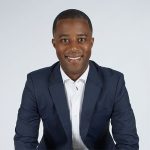 As a high-wage earner, you have one piece of the puzzle: great income to support you and your family. But deep down inside you know earning that high salary comes at a cost: freedom. Specifically, the freedom over your time. The freedom to choose how to spend your time, with whom you spend your time, and more often than not, when and where you spend your time.
As a high-wage earner, you have one piece of the puzzle: great income to support you and your family. But deep down inside you know earning that high salary comes at a cost: freedom. Specifically, the freedom over your time. The freedom to choose how to spend your time, with whom you spend your time, and more often than not, when and where you spend your time.
I’m just a regular guy from a middle-class family from Columbus, Ohio, who grew up knowing nothing about investing. When I started to become successful in my
career, I had no idea how to invest my high salary. I was too embarrassed to ask because I felt like I “should’ve” already known. I remember hearing colleagues talking
about being “accredited investors” and giving them fake nods like I knew who they were talking about.
From that point on I gave myself the challenge of learning everything I could about all things money and investing. My mission was to turn my high wages into financial
freedom. 8 years later, I achieved it: I created a monthly passive income that met all of my expenses. I no longer had to work if I didn’t want to.
Now, my mission is to guide you to your own freedom.
Our sponsor, Tribevest provides the easiest way to form, fund, and manage your Investor Tribe with people you know, like, and trust. Tribevest is the Investor Tribe management platform of choice for Jim Pfeifer and the Left Field Investors’ Community.
Tribevest is a strategic partner and sponsor of Passive Investing from Left Field.

